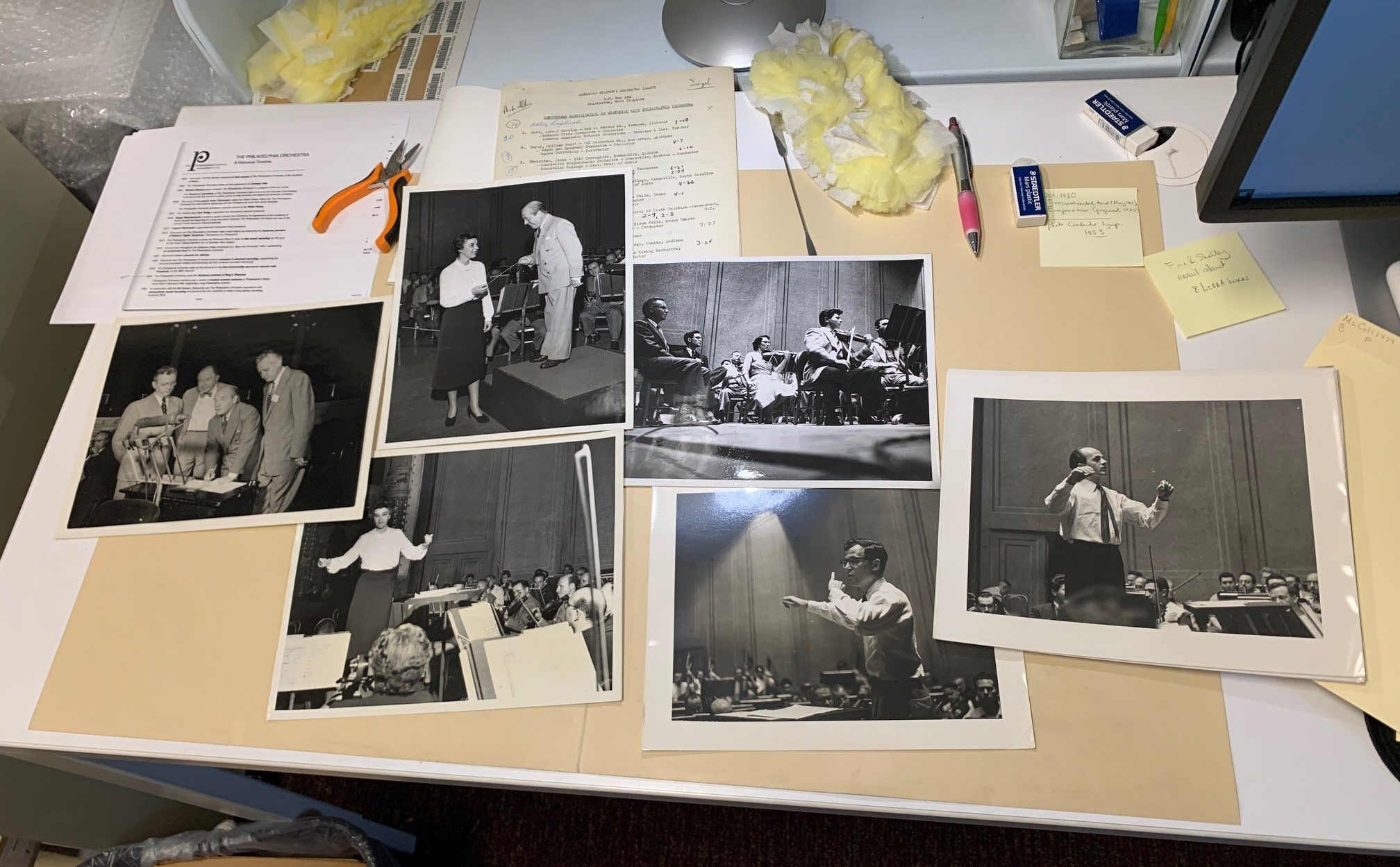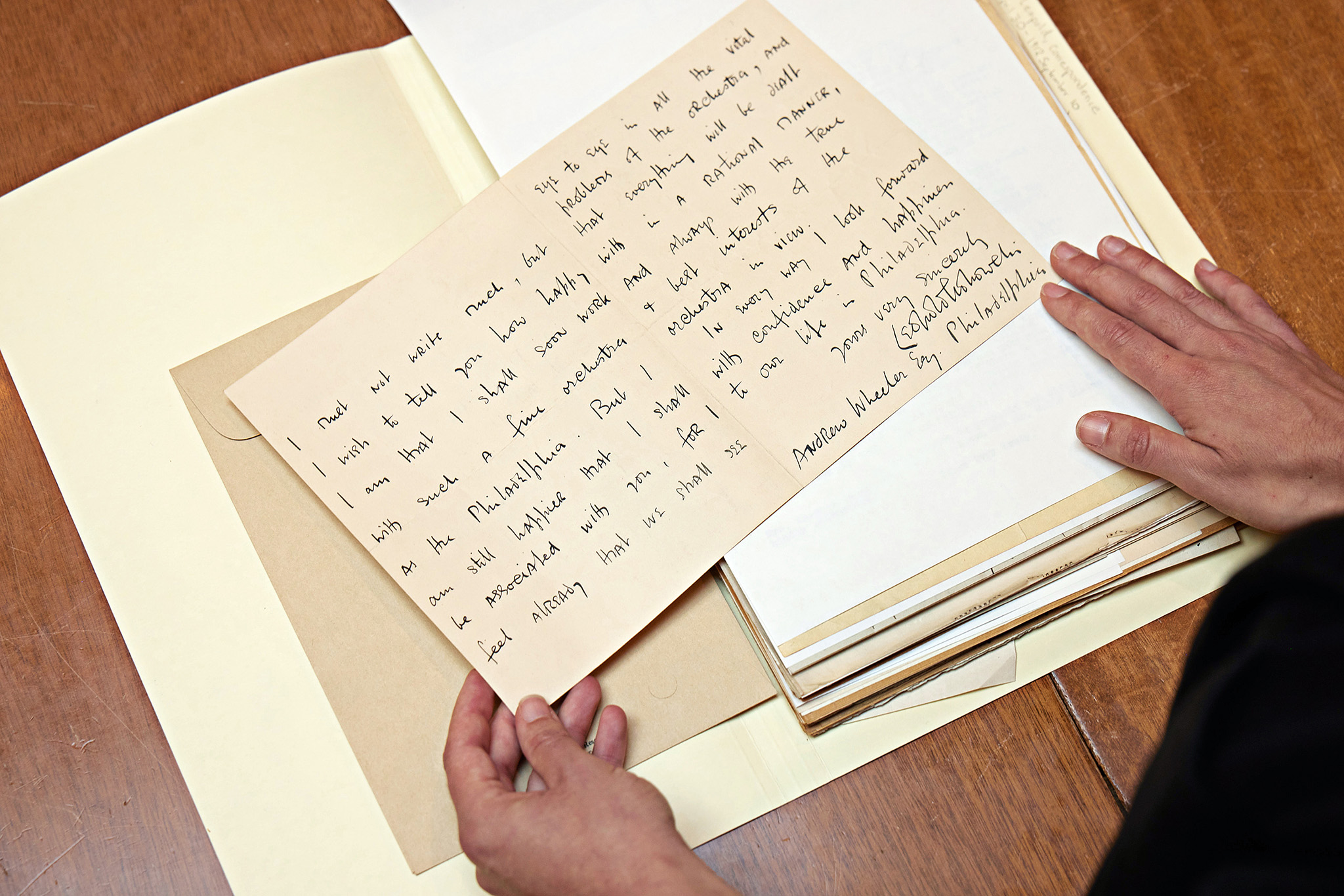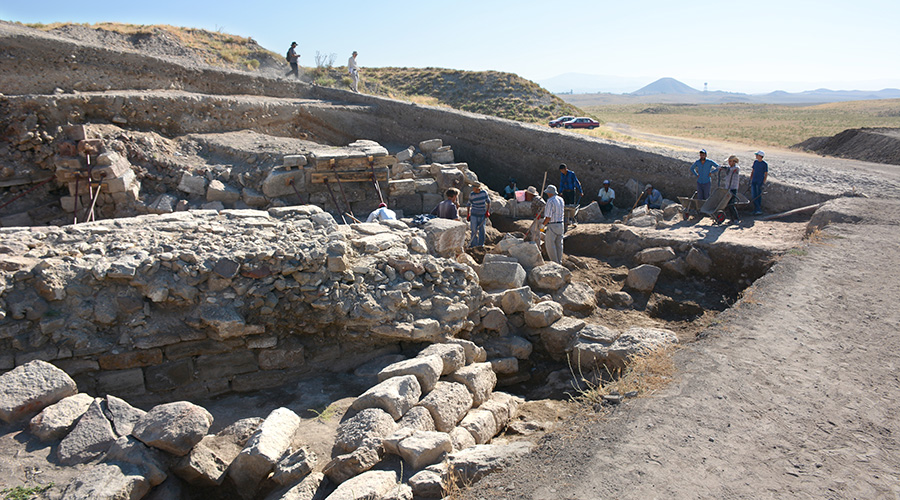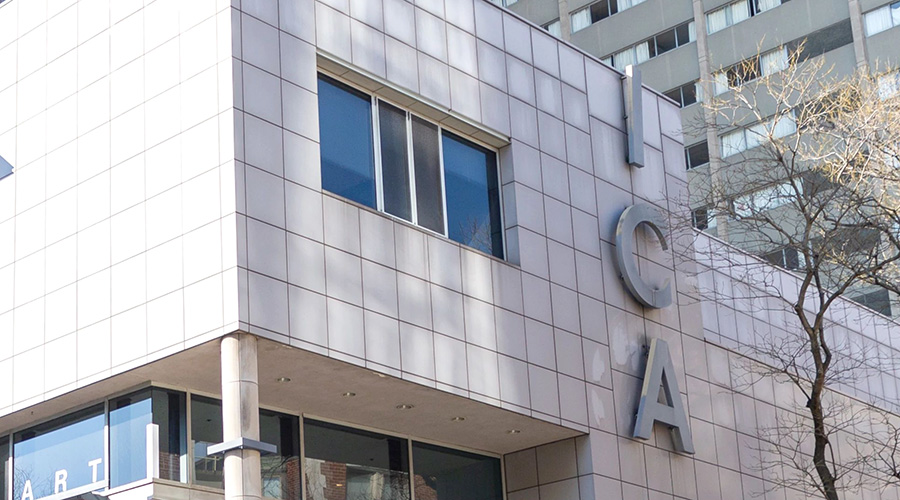In an unassuming office in Van Pelt-Dietrich Library, the archives of the Philadelphia Orchestra Association and Academy of Music are being cared for, curated, and catalogued one cardboard box at a time.
An Instrumental Gift
Alumni support is ensuring that the newly acquired Philadelphia Orchestra archives will be carefully preserved
The archives found a new home at Penn in 2022, thanks in part to a gift from Joseph B. Glossberg, W’63, W’65, a former Trustee and emeritus chair of the Penn Libraries Board of Advisors. His gift is helping to support the meticulous processing work required to prepare 175 years of Philadelphia symphonic music history—from sound recordings, photographs, and personal correspondence, to charters, scrapbooks, clippings and ephemera. Once processed, these archival materials will be available for use by scholars and the public.

Publicity images are processed and preserved from the annual Conductor’s Symposium, hosted for several years by the Philadelphia Orchestra to train up-and-coming conductors in the early 1950s.
Essential to this work is Anna Juliar, a processing archivist at the Kislak Center for Special Collections, Rare Books and Manuscripts. Neat handwriting, a classical choral background, and music training aren’t qualifications for the job, but Juliar happens to have all three. She also has a master’s degree in information and library science, and has worked for over a decade in academic libraries, museums, and special collections.
Her days are spent on the smallest of details. Behind a pile of manila folders at Van Pelt-Dietrich Library, Juliar is labeling, taking notes, organizing files, and processing materials. “It smells like an old closet in here,” she says, gesturing to her workspace. The tools of her trade include pliers, large tweezers, and a stainless-steel spatula that can pop off rusty pins and paper clips. “One of my jobs as an archivist is to isolate papers to preserve them,” says Juliar. “Newspapers, memos, telegrams, and type-written letters are often printed on acidic paper. They bleed into adjacent documents over time, making them brittle.” As Juliar examines and processes each item, she creates a finding aid that will function as a digital catalogue and guide researchers to access the collection. According to Juliar, the plan is to process the archives and publish the finding aid in series, starting with the administrative records. This work is crucial to unlocking the research value of the archives.
Without archival processing, the Philadelphia Orchestra collection would be undiscoverable to researchers.” Liza Vick, Head of the Penn Libraries’ Otto E. Albrecht Music Library and the Eugene Ormandy Music and Media Center
Glossberg has played an instrumental role in strengthening the Libraries’ existing musical collections over several decades—particularly as they relate to the Philadelphia Orchestra. This latest gift is consistent with his commitment to advocacy and philanthropy, as well as Glossberg’s own passion for music. Indeed, the acquisition of Leopold Stokowski and Eugene Ormandy’s personal papers and the creation of the Marian Anderson Music Study Center all happened during Glossberg’s time as a volunteer leader at the Penn Libraries. “The Philadelphia Orchestra was a life-changing part of my Penn experience,” says Glossberg. “As a student, I would often watch [Eugene] Ormandy conduct. Walk-up tickets were $3, and I would sit in the front row in awe.”

Personal correspondence from the archives of the Philadelphia Orchestra.
With the recent acquisition, and Glossberg’s gift, students, faculty, and scholars around the world will be able to come to the Penn Libraries in order to explore the history of The Philadelphia Orchestra and Academy of Music in greater depth than ever before. “Our Philadelphia music collections are a major part of what we do,” says Sean Quimby, Associate University Librarian & Director of the Kislak Center for Special Collections, Rare Books and Manuscripts. However, properly processing the archives for use by researchers will take considerable time. “This project will take several years, and we’re committed to seeing it through,” adds Quimby.
The full extent of the archives’ research value is yet unknown, but Juliar’s work provides a glimpse into their breadth and potential. “During World War I, we have correspondence between the conductor and his European musicians who went home to fight in the war,” Juliar says. “I also learned that during World War II, the Academy of Music served as a bomb shelter.” These and many more exciting discoveries await eager researchers in the fields of music, history, Philadelphia culture, and beyond.
To learn more about the Philadelphia Orchestra Association or Academy of Music archives, or philanthropy and engagement at the Penn Libraries, email Sam Duplessis, Director of Advancement, or call (215) 573-3609.




